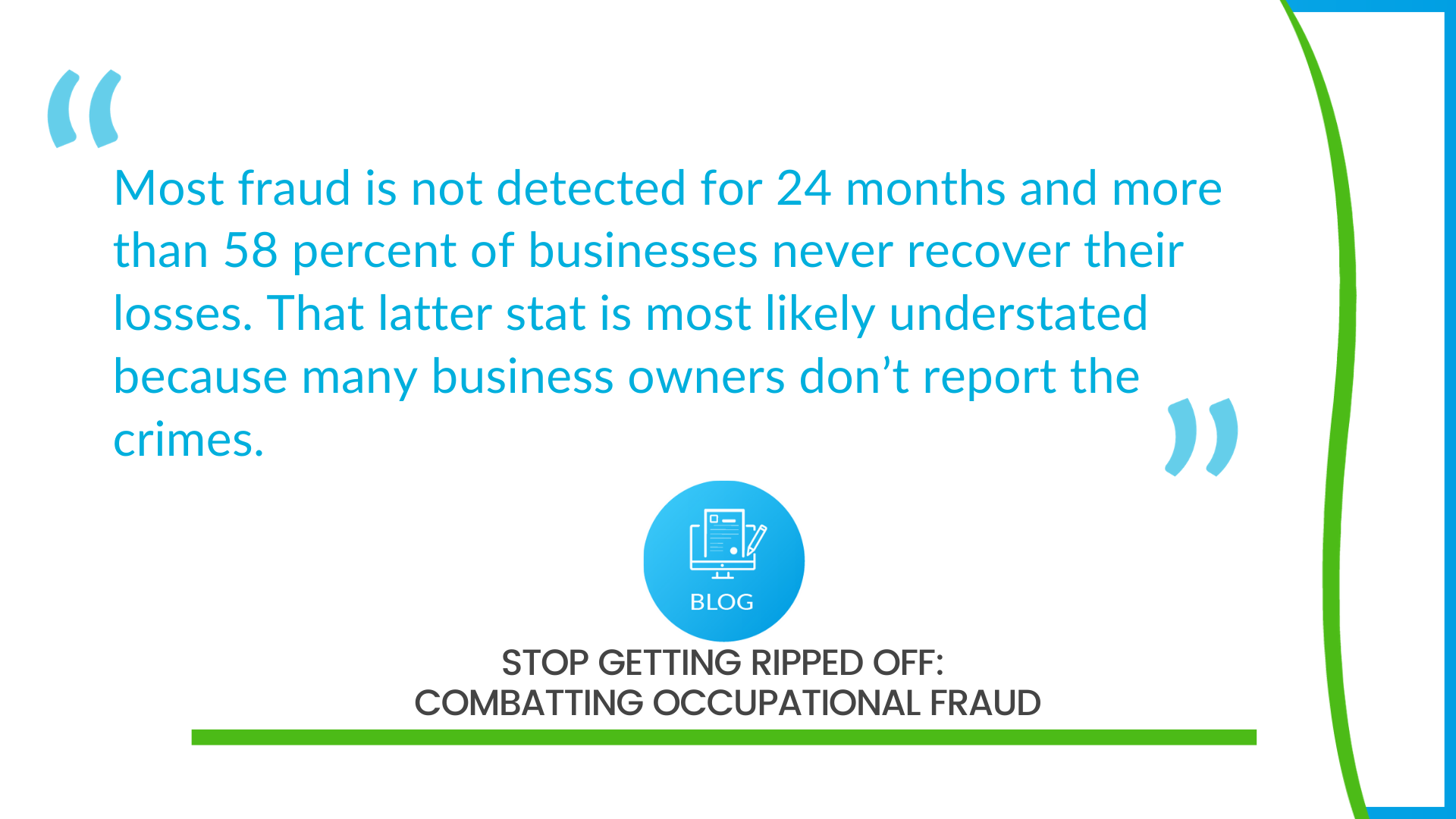Stop Getting Ripped Off: Combatting Occupational Fraud
Enough is enough. Business owners are tired of being victims of fraud committed by their own once-trusted employees. Known as occupational fraud – or business fraud – this is when employees use their position for personal gain through the deliberate misuse of your business’s resources or assets. Payroll fraud. False or inflated expense reports. You get the idea.
Here are two sad statistics from the Association of Certified Fraud Examiners (ACFE): Most fraud is not detected for 24 months and more than 58 percent of businesses never recover their losses. That latter stat is most likely understated because many business owners don’t report the crimes. Why? They’re afraid of bad publicity, don’t want to pay the legal expenses that can be incurred and, since in most cases there’s nothing to recover, most owners simply don’t think it’s worth the effort.
Don’t be a victim. Let me share with you some ways to detect and reduce occupational fraud in your MSP business.
Your Employees
Sure, we all want to hire good, honest people. That’s idealistic; unfortunately, it’s not realistic. That’s why you need to conduct all the necessary background checks. These should cover criminal history, employment history, credit history, education, social media activity, and drug screening. They’re critical because some of the top reasons employees steal from their employers are daunting personal debt (due perhaps to an unstable work history or medical issues), and to support drug or alcohol addictions. So the background checks could raise red flags and save you from falling victim to fraud because you hired the wrong job candidate.
What about current employees? Are any uncharacteristically spending money they don’t have? Are any facing financial difficulties from a medical condition or divorce? While you want to trust your employees, you cannot build a secure business on trust. It’s unfortunate, but honest people steal – especially if they fall on hard times and are too embarrassed to ask for assistance.
Common Types of Fraud
The ACFE says that small businesses – which most MSPs are – experience fraud because they lack internal controls. To help you determine if your business is guilty of that, here are the most common types of fraud that occur and the controls that you can implement to reduce or eliminate them from occurring.
Bill payment schemes: This is where an employee creates a fake invoice or inflates a legit one. The solution? Never let the employee who writes the checks also be the person to reconcile the bank account. According to the ACFE, sole perpetrators take advantage of a lack of controls. So if you allow the same individual to write the checks and review the bank statements, then that person has all the power over the banking transactions.
Payroll fraud: The payroll manager can change the amount of their wages or create a false employee and direct the pay to them. This person is typically the one who insists on keeping the payroll in-house. Of course they would. To combat this, outsource your payroll. It’s much more affordable and secure to outsource the work.
Expense reimbursement: It’s quite common and easy to submit a false or inflated expense report. Of course, you should have a strict policy of submitting receipts with all expenses. Even better, use phone apps that easily capture receipts and can be directly submitted to your accounting system.
Combating fraud isn’t easy, but even adding an anonymous hotline – either email or phone – can help. In fact, it’s the most popular way that businesses of all sizes are fighting back. It’s a great first step for you to take.

